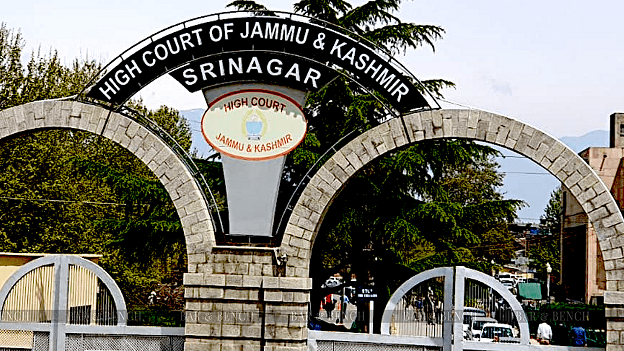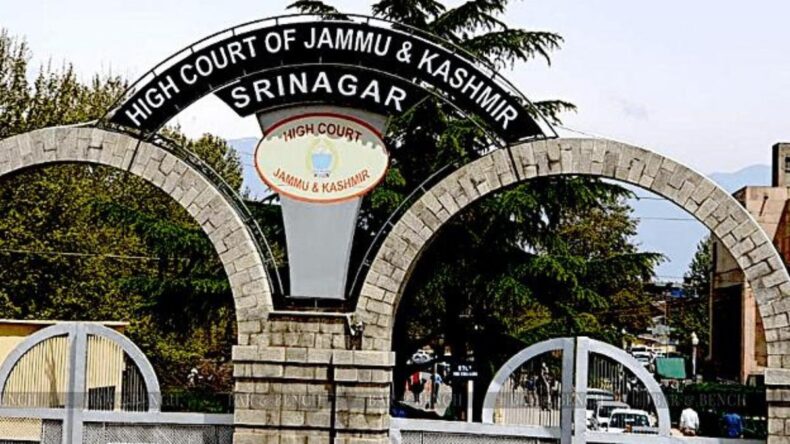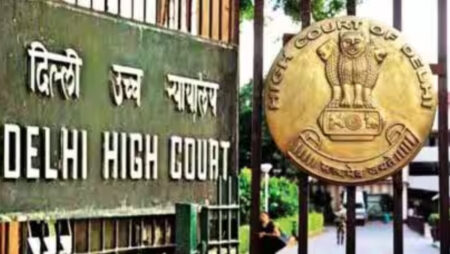
A landmark decision concerning the obligation of insurance providers to reimburse employers for the interest and penalties due for delayed payment of benefits under the Employee’s Compensation Act, 1923, was recently made by the Jammu and Kashmir & Ladakh High Court. Unless there is a formal contract between the employer and the insurer, the court emphasized in a case heard by Justice Sanjeev Kumar that insurance firms cannot be held automatically liable for indemnifying employers for interest and penalty.

Background of the Case
Four employees were engaged in the court case; they had sustained serious injuries during blasting operations carried out by their company on July 26, 2004. They were rendered permanently incapacitated and unable to work as a result of the injuries. The employees filed separate claim applications under Section 3 of the Employees’ Compensation Act, 1923, in an effort to obtain justice. In the lack of any counter-evidence from the employer or insurance, the Commissioner of Workmen’s Compensation decided in favour of the employees after reviewing the evidence offered by the workers. The United India Insurance Company Limited has been instructed to deposit the granted compensation as indemnity. The Commissioner awarded the employer a total compensation sum of Rs. 12,79,130.
The Issue of Interest and Penalty
However, as required by Section 4-A of the Act, the Commissioner did not address the matter of interest and penalty. The workers appealed the Commissioner’s judgement to the High Court after being dissatisfied with it, claiming that the Commissioner erred by foregoing the interest and penalty that are required under Subsections (a) and (b) of Section 4-A.

The Court’s Ruling
When deciding the case, Justice Sanjeev Kumar emphasised that benefits under Section 4 of the Employees Compensation Act start to be paid as soon as they become due on the day of the accident, not when the Commissioner makes an adjudication under that section of the Act. The Commissioner is required to instruct the employer to pay simple interest at a rate of 12% per year or at a higher rate established by the Central Government if the employer fails to make the payment within one month of the day it became due.
After reviewing the case, the court saw that the Commissioner failed to explain why interest and a penalty were not given, which suggested a mistake in the judgement. It was also stated that, unless there is a special agreement between the employer and the insurance carrier, the employer is solely responsible for paying interest and penalties.
The court determined that the employees are entitled to interest payments at a rate of 12% annually beginning on the accident day, July 26, 2004. The court decided not to penalise the employer at this late date, nearly 19 years after the accident, due to the Commissioner’s lack of conclusion about any rationale for the delayed payment.
Conclusion
The recent decision by the Jammu and Kashmir & Ladakh High Court emphasises the insurance industry’s responsibility to hold employers harmless from interest and penalties for delayed payment of compensation. The court emphasised that the insurance company cannot be automatically held liable for such payments unless there is a particular arrangement between the employer and the insurer. According to the Employees’ Compensation Act, the employer is responsible for paying the interest and penalty. The decision guarantees that workers receive their due compensation and offers instructions on what employers and insurers should do in these situations.
This decision safeguards the rights of workers and ensures that employers fulfill their obligations under the Employees’ Compensation Act. It also highlights the importance of specific contractual agreements between employers and insurers in determining their respective liabilities. The ruling provides clarity on the responsibilities of employers and insurers, ultimately promoting fair and just compensation for workers.













